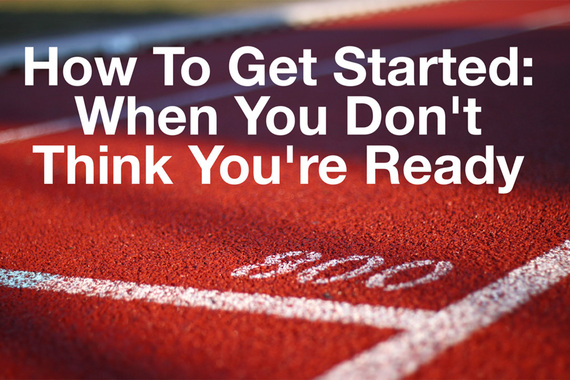What keeps you from getting started? What's holding you back from going to the next level? Or moving on to the next big adventure? Do you have a feeling of not being good enough? A fear of being criticized by others?
A desire for perfection and waiting to be "ready" often holds people up. But, as we all know, if you never start, you'll never know. The question is then, how do we get started when we don't think we're ready?
Perhaps the solution is found in having a beta mind. Much like software and tech companies put out first versions- "beta" versions, to test, get feedback, and fix any problems- you too can use the same principle when it comes to getting your idea, business, and life out of the starting block.
Put your idea out into the world and give it a test drive. Get feedback and then create, recreate and fine tune. Anders Ericsson, a recent guest on my podcast Creative Warriors, talked about achieving mastery through deliberate practice, and his process of mastery--focus, feedback, and fix, is similar to having a beta mind. Get your idea out into the word; get feedback about your idea, product, or service; and then fix or fine tune what you are offering based on what you've seen and heard from the public, specifically your consumers and/or audience. You cannot wait until everything is perfect or completely ready in your mind's eye. If you do, you will likely miss out on a great opportunity.
Great ideas require action, and in today's competitive market, that action must be swift. So, as I tell my coaching clients, get what you are offering out into the world, even if it's only sixty percent right. That's not to say you should throw something together and sloppily put it out there. Instead, move forward so that you can get feedback from the people you want to serve, striving towards 100%. Allow your audience the chance to inform you of how you can improve--that is the essence of beta testing. In fact, with the advent of my own online course, The Creative Warrior Unleashed, I followed this advice when launching it initially as a live program and did not prepare the 7 week course in advance. A bold move for someone who is always overly prepared. With a beta mind, I launched the course, listened to those who were taking the course and used their feedback and comments about how they would be best served to assist me in developing the final online program. If I had waited until I had solidified every aspect of the course and then presented it perfectly, it would have been a completely different product and actually would not have served [my clients] as well.
By having a beta mind -by listening to those you want to serve- responding to their needs is easier and absolutely the best way to serve. By releasing your fear of being ready and by letting go of the need for perfection from the outset, you ensure that your service or product will be perfect, not perfect as a standard but rather perfect for those who need what you are offering. This type of co-creation, the result of beta testing and collaboration with your clients and consumers, creates perfection as it is meant to be. It's perfect for those you serve. It's not about you being perfect.
The beta process- getting "it" out there, listening to feedback, tweaking and adjusting, and returning "it" to those who will benefit. The more you have a beta mind and use this process, the more opportunities you can explore. A beta mind prevents stalls and stops- paralysis of sorts; a beta mind yields action and productivity. And, as President Harry Truman once said, "Imperfect action beats non-action every time."
A beta mind explores, asks questions, acquires and digests feedback- it collaborates with the world around us and with the people it serves!
A beta mind does not create for people; it creates with people. The beta process results in what people really want and not what you think they want. And, of course, those results will inevitably reward you. Nicely.
Conceptualize. Co-Create. Collaborate. Innovation for a new generation--a beta mind.
